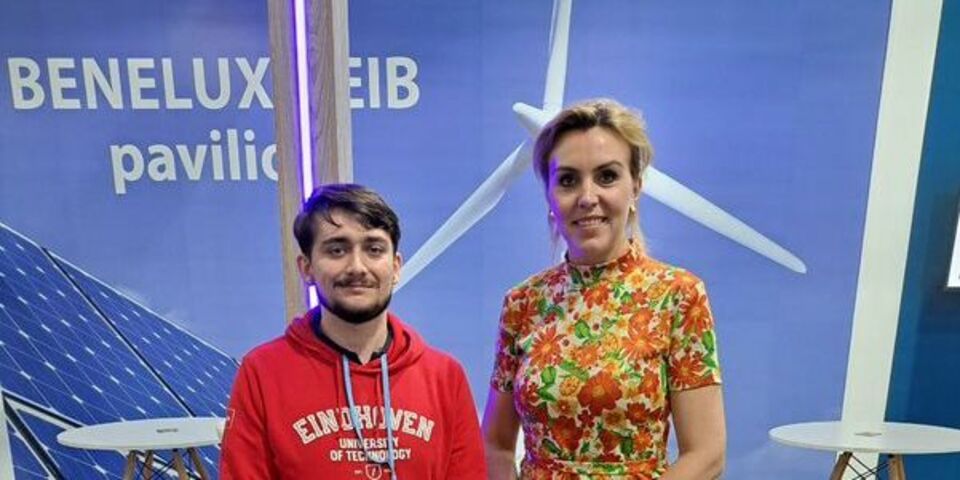TU/e student went to COP27
From November 6 to 18, the United Nations Framework Convention on Climate Change (COP) was held in Egypt. Nicolas Brodbelt, bachelor’s student Industrial Engineering & Innovation Sciences, travelled to Sharm El-Sheikh “to connect with people and be able to bring more action to TU/e and maybe someday have the university send a delegation to the COP each year.”
The conference is in a different country every year and is used by governments worldwide to agree on policies to limit global temperature rises and adapt to the impacts of climate change. This COP yielded a new thing: a climate fund for the climate disasters in the global South. It was quite a tough journey though: the decision was made after the official end of the conference. And the summit failed to forge a plan to cut CO₂ emissions drastically enough to avoid further severe climate change, says UN chief António Guterres.
Regardless of the results of the summit, Brodbelt is happy he went: “It is very useful to go to a meeting like this. You get a lot of experience with how climate negotiations happen, and at the same time, you as a student or employee also have knowledge to bring to the table. Applying knowledge of the courses in a hands-on way.”
Brodbelt is passionate to make a change regarding the challenges the world is dealing with at the moment. “I think this is an invaluable experience to meet people that are working on climate adaptation and mitigation, which is particularly insightful for my bachelor’s program (IE&IS). My hope is to connect with people and be able to bring more action to TU/e and maybe someday have the university send a delegation to the COP each year. But the COP didn’t feel to have a unified approach by all universities in the Netherlands, just some observers sent by some universities.” Brodbelt tried to check already before his trip to find other TU/e students or employees going, but he didn’t find any. “I was alone in Egypt, but I did meet many interesting people, including the Minister for the Environment, Vivianne Heijnen.” (see the header photo)
Protesting in Egypt
Brodbelt had issues getting into the “really interesting part of the COP where the decisions are made: you need a badge or a certificate to get in and therefore you need to be part of an official organization accredited with an “Observer Status” and the TU/e is not a part of that process as far as I could find. That’s sad.” But in the end, he did manage to get into the special ‘Blue Zone’ after all. “It opened up so many more possibilities. I achieved the same level of impact in a span of one day in the Blue Zone as I had over the other days in the Green Zone and the newly created Innovation Zone.”
The COP also gets criticism and attracts protests. Brodbelt went to one protest in Sharm El-Sheikh, the ‘People’s Plenary’. “It was good to be there, the voices of the global South were empowered. It was possible to protest for the climate here, but protesting for human rights is another story in Egypt unfortunately…”
This wasn’t Brodbelt’s first COP, he also visited COP25 in Madrid three years ago. The conference could be improved though, according to Brodbelt: “You still see subtle greenwashing and propaganda by governments, which is frustrating, but it is already better than in Madrid.” Even though the conference has ended and it takes another year for the next one, Brodbelt will not sit still. “I’m hoping together with the interdisciplinary TU/e group Technology for Global Development (TGD) to get some of the speakers to come to TU/e to share their thoughts, as well as institutionalize participation of TU/e in this conference.”




Discussion